Eliot Cutler, Paul LePage, Libby Mitchell, Shawn Moody and Kevin Scott — if those names aren’t familiar yet, they will be by November.
Those five are the gubernatorial candidates who will be on the Nov. 2 ballot. After more than a year of campaigning, the field of 11 party candidates was narrowed Tuesday to two: Republican LePage and Democrat Mitchell.
Cutler, Moody and Scott are independent candidates who have qualified for the ballot by collecting at least 4,000 voter signatures.
Exactly how the next five months will play out was a matter of speculation Wednesday, the day after primaries that surprised many.
Despite pre-election analyses showing no clear front-runner in either primary, LePage got 38 percent of the Republican vote in a seven-way race. His closest contender, Les Otten, got just 17 percent.
LePage handily won every county except Oxford and Hancock.
In the Democratic race, Mitchell got 35 percent of the vote, with Steven Rowe next at 23 percent. She won every county but Somerset.
Observers said Wednesday that the primary results may create an interesting three-way race involving Cutler, Mitchell and LePage.
“The two parties have nominated the most liberal Democrat and the most conservative Republican,” said Sandy Maisel, a political scientist at Colby College in Waterville. “To me, that leaves a great gap in the center.”
Michael Franz, a professor of government at Bowdoin College in Brunswick, said he foresees a “pretty aggressive” three-way race.
“With Libby on the left, LePage on the right, Cutler has a chance to capture the center,” he said.
Cutler, who was an aide to Sen. Edmund Muskie and a Carter administration official, has worked on presidential campaigns and as an environmental and land use attorney for 30 years. He has aired TV ads as part of an active campaign, and is widely seen as a strong contender.
Moody and Scott are not as well-known.
Moody owns Moody’s Collision Centers in southern Maine, and ran a stealth campaign until Wednesday, when he held a press conference announcing his candidacy — his first foray into politics. He also launched TV ads Wednesday, spending some of the $500,000 he has loaned to his campaign.
Scott is running as a “citizen governor.” He has driven around the state campaigning. He runs a business that fills professional staffing needs for high-tech firms.
Scott has been an elected member of his town’s water district and was appointed to a three-year term on its planning board. He has also been elected moderator for two town meetings.
Roy Lenardson, executive director of Maine Leads and a longtime GOP strategist, said Moody and Scott may affect any inroads Cutler makes into the middle ground.
If it were just Cutler, LePage and Mitchell in the race, said Lenardson, the two party candidates could maintain the 30-plus percent of voters they had in the primary, and the independent could come out on top.
But with three independents in the race, Mitchell and LePage may each get 30-something percent, and the other candidates would divide the rest.
“The more independents are an advantage for Libby and LePage,” he said.
LePage and Mitchell must build their political forts and keep everyone who voted for them inside, Lenardson said — and bring more from the middle into the fold.
That middle straddles both parties, as well as unenrolled voters. In Maine, unenrolled voters are the largest bloc, at 364,238, followed by 316,949 Democrats and 260,167 Republicans.
Mark Brewer, a political scientist at the University of Maine, said LePage and Mitchell will be looking at adjustments — if any — they must make to their campaigns as they move from primaries to the general election.
Over the next few weeks, they will likely work to draw in supporters from their primary opponents, he said.
Maisel said that might be easier for Mitchell than for LePage. In the Democratic primary, the four contenders were more ideologically similar than the seven Republicans.
Maisel said he thinks Mitchell could move a bit to the center, to appeal to the broader voter base. He said he isn’t sure that LePage will shift from the right.
Jesse Connolly, former chief of staff for Speaker of the House Hannah Pingree and Gov. John Baldacci’s 2006 campaign manager, said Mitchell has an advantage as potentially the first female governor of Maine.
“You’re going to have a lot of women across the state of different party ideologies that really want to see this glass ceiling break,” Connolly said. “Libby’s going to have a strong women’s presence throughout the state.”
Chris Jackson, a lobbyist for the Maine State Chamber of Commerce, ran Republican Chandler Woodcock’s 2006 gubernatorial campaign. He said he will watch to see how the candidates break out of the gate in the next month.
The party candidates, in particular, can leverage their victories and name recognition to get free media — stories about them on TV and radio and in newspapers, Jackson said.
Successful candidates will be those who strongly define themselves — before an opponent defines them, he said. And candidates will have to maintain support from their base while trying to appeal more to moderates and independents.
If the race is particularly competitive, he said, he won’t be surprised to see third parties make campaign expenditures.
There’s plenty of time before the Nov. 2 election, said Jackson, and anything can happen.
“Five months is such a long time — in politics it’s an eternity,” he said.
Staff Writer Matt Wickenheiser can be contacted at 791-6316 or at:
mwickenheiser@pressherald.com
Send questions/comments to the editors.

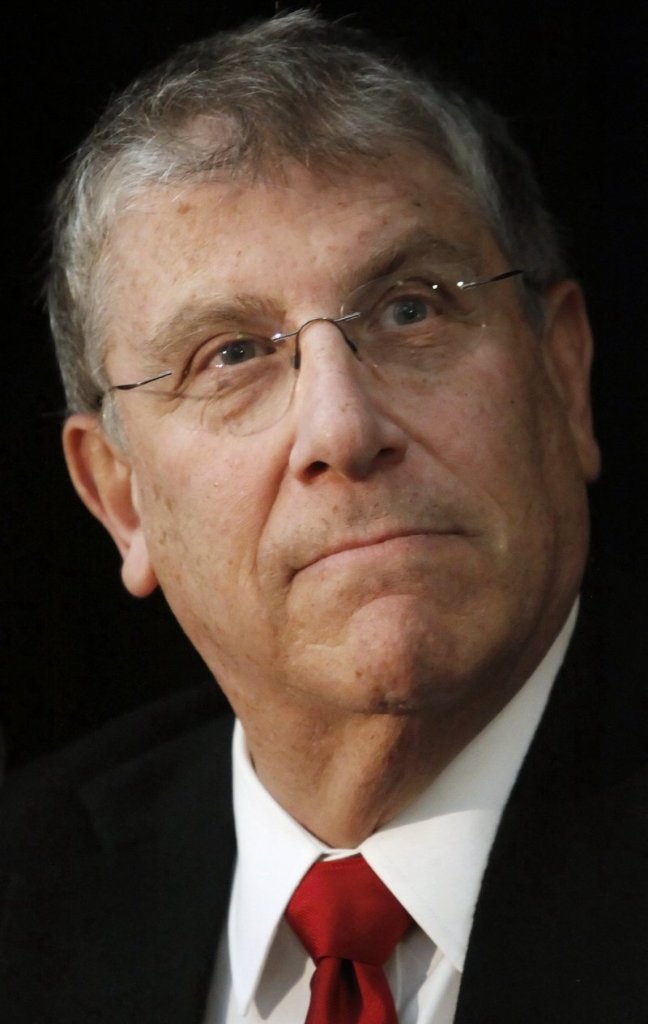
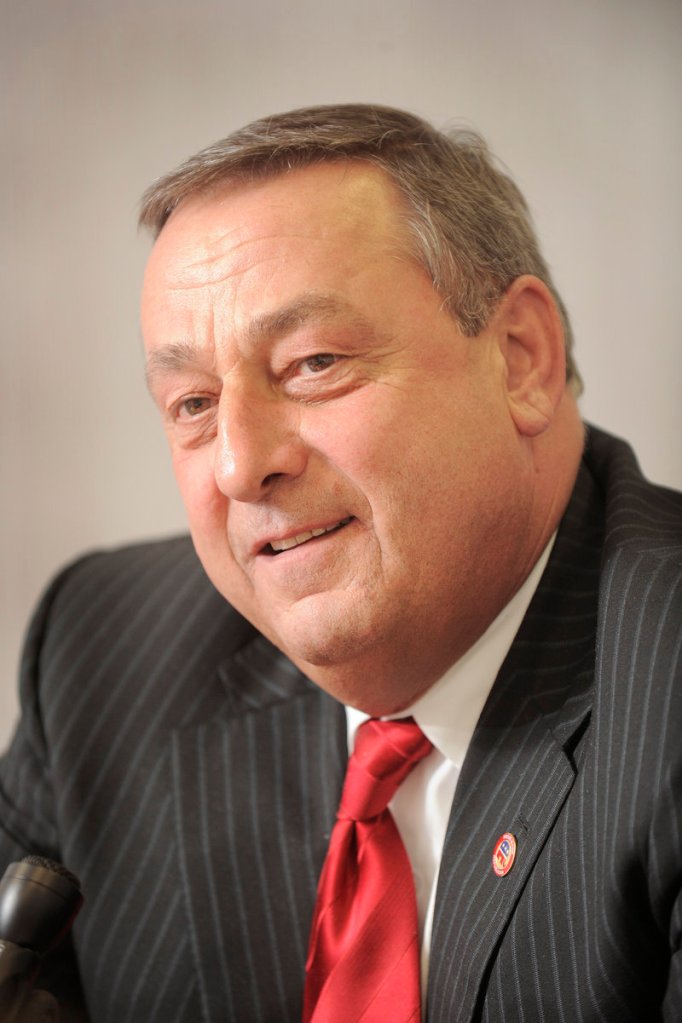
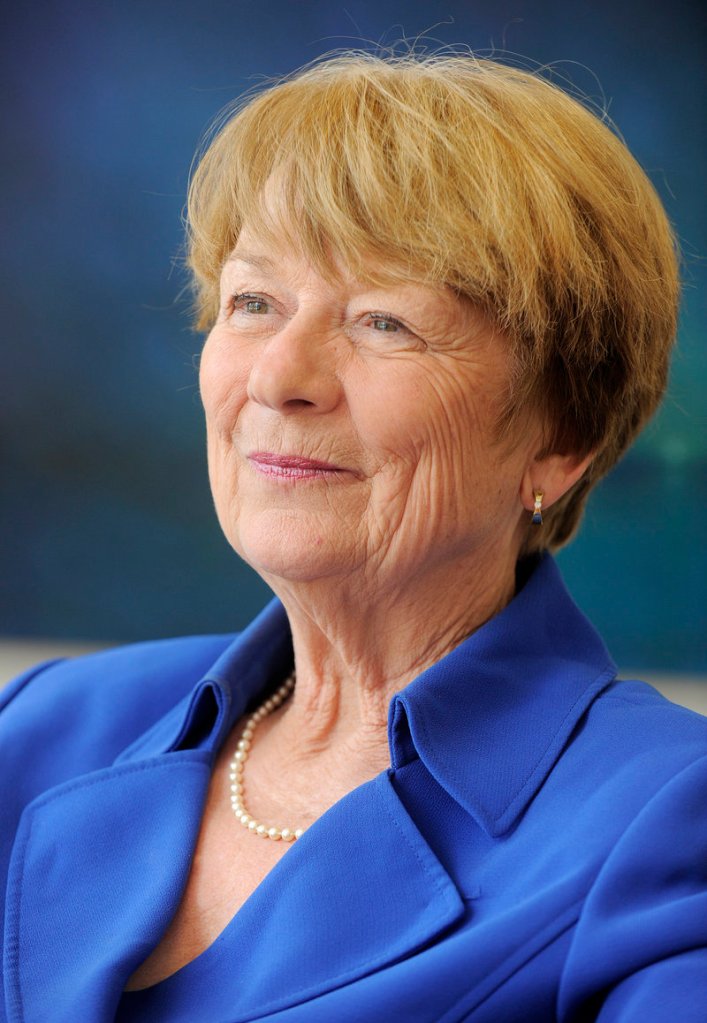
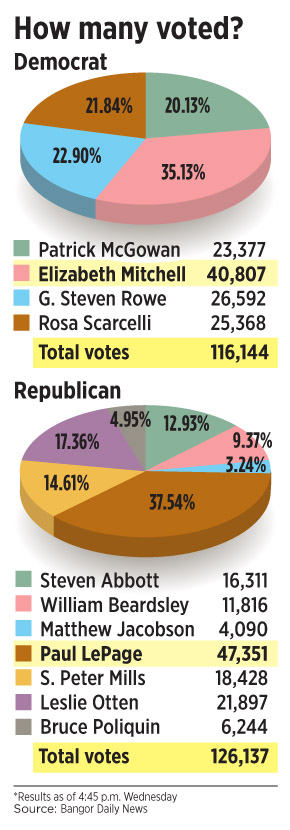
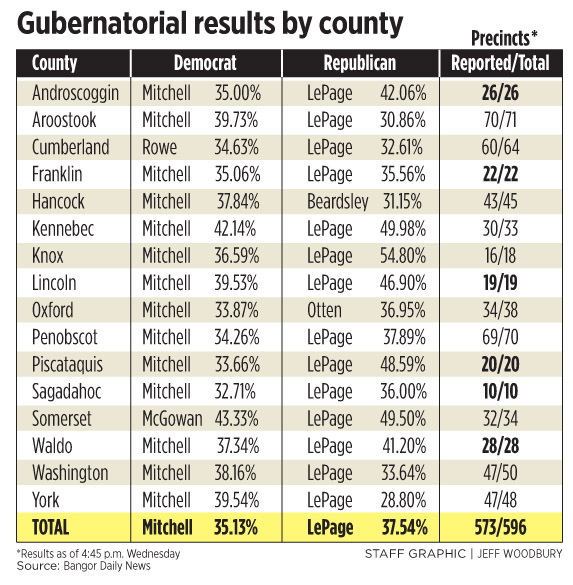

Comments are no longer available on this story